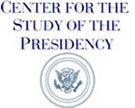“The government cannot turn back,” Abhisit Vejjajiva, the prime minister, said in a nationally televised address on Saturday night.
“Ending the rally is the only way to prevent calamity.”
The military appeared to be taking a different tack Saturday than it did last month, when it stood down after a day of violence that killed 25 soldiers and civilians and shook this city.
The military said it was calling in reinforcements, adding to the thousands of troops already in the city, and there were many reports on the streets that snipers were firing at protesters. Some of the protesters were setting barricades of tires on fire, sending up tall plumes of smoke apparently in an effort to keep out troops.
The protesters, who began their demonstration here two months ago, have demanded the resignation of the government and new elections. But the movement, which is made up of farmers and the urban poor, many of them supporters of Thaksin Shinawatra, the prime minister deposed in a 2006 military coup, has fractured and their ultimate demands are now not clear.
In his television appearance on Saturday, Mr. Abhisit tried to explain the government’s tougher stance, saying that he feared that armed groups, which he said were siding with the demonstrators, could overthrow the government.
“We cannot let the country remain in this condition, where people do not respect the law,” he said.
Shortly before he spoke, leaders of the country’s powerful military appeared on television in what may have been a deliberate show of unity for an army notorious for its divisions and intrigue.
Inside the protesters’ barricaded encampment the crowds were thinner and more subdued than they had been before the shootings began. Under rows of tents and in a plaza in front of a sound stage, many sleeping mats and plastic chairs stood empty, and protest leaders did not offer their accustomed rousing speeches from the stage.
At a small news conference, one of the leaders, Nattawut Saikua, asserted that it was no longer possible to control some of the protesters, saying they had been infuriated by military moves against them.
The United States government said it was offering a voluntary evacuation of nonessential personnel in its embassy in Bangkok and advised against all travel to the Thai capital, a revision from its previous stance of advising against nonessential travel.
“Eligible family members that choose to depart Bangkok may do so with assistance of the State Department,” said Cynthia Brown, a spokeswoman for the United States Embassy.
Among the casualties of three days of clashes was an emergency medical technician who was riding a motorcycle when he was fatally wounded and four journalists, all of whom were wounded but survived.
Because of the fear of snipers, a photographer said, two dead or wounded victims lay for a long period in a street unattended. The military was not allowing ambulances to pass a roadblock, the photographer said, which meant that rescue workers had to run at a crouch with stretchers to carry out the victims.
The military posted a banner in one neighborhood declaring a “Live firing zone.” The banner also included the words in English that were misspelled as “life firing zone.” A Thai television station reported that the banner was taken down late in the afternoon on Saturday.
The violence occurring today is likely to harden divisions between the country’s poor majority, which forms the base of the red-shirt protests, and its elite establishment, which feels threatened and discomfited by the long occupation of the city’s upscale commercial center.
Underlying the protests is a rising awareness among the poor of their rights and a demand for a greater share in the country’s wealth and political voice.
Mr. Thaksin, the prime minister deposed in 2006, remains abroad; he is wanted in Thailand on a conviction for corruption. He had mobilized the poor as a political base, and the demand for democracy that is often heard among them now reflects a sense that their vote was stolen from them when he was ousted.






